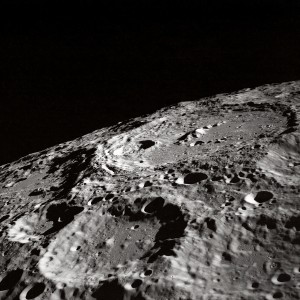Today I’m continuing last week’s discussion of Aristotle in response to Pascal-Emmanuel Gobry’s post “How our botched understanding of ‘science’ ruins everything.” Last week I discussed the questions Aristotle was trying to answer; this week I’m going to discuss his methods vs. the methods of modern scientists.
In Ancient Greece, the very type of true knowledge was mathematics. Here certainty was possible; and the Greeks were good at it, both arithmetic and (most especially) geometry. I’ve read that mathematics was the primary curriculum at Plato’s Academy, and was considered a necessary precursor to all other learning, precisely because of the intellectual rigor it requires.
Aristotle’s project, as we’ve seen, was to seek the ultimate causes of the things around him; and his method was to proceed by reasoning from essential first principles and his observations of the things around him by what’s called a demonstration: the philosophical equivalent of a mathematical proof. To this end he built up quite a large body of logical apparatus that was collectively known in ancient times as the Organon, the “Instrument”. It’s an effective instrument, and is (in several evolved forms) the basic tool of philosophers to this day.
The fault of Aristotle’s medieval followers was to apply this tool, this logical instrument, to any and all intellectual questions, rather than recognizing that each question, or each kind of question, has its own proper approach; and as PEG notes, some of them actively discouraged the development of alternative tools.

The stalemate was finally broken by the invention of the telescope, and the discovery that the Moon and other heavenly bodies were not the perfect incorruptible spheres everyone had thought they were. Until that time, as Mike Flynn has documented in his fascinating “The Great Ptolemaic Smackdown“, astronomy was considered a branch of mathematics, entirely concerned with computing where the heavenly bodies would be at particular times. Any system that “saved the appearances” was as good as any other, with the key good being ease of computation. The telescope changed all this: the Moon, in particular, was observably not a smooth sphere, having mountains and craters, and this meant that perhaps the same physical laws that obtained here on Earth also applied in the heavens.
Let me say that again. This meant that perhaps the same physical laws that obtained here on Earth also applied in the heavens. This seems obvious to us now, but it was far from obvious to our ancestors. I would argue that this discovery had as much to do with the development of modern science as did the eventual rejection of Aristotle’s method of logical demonstration. Certainly it would have made Aristotle reconsider a few things.
This highlights one of the problems with Aristotle’s method: it’s hard. In mathematics, the entities about which you are reasoning are usually very simple and abstract—numbers, lengths, points, lines, and plains. Terms do not shift their meanings as you go. But when you apply this kind of reasoning to real world entities like men, dogs, trees, and stones you have to be extremely careful with the definition of your terms, and even then you might well go wrong. An ounce of observation is worth a pound of conjecture, as the man said, at least a pound; and if you can simply go look and find the answer it’s well worth your effort to do so. Hence, Aristotle’s method (and the modern methods that descend from it) have now been relegated to that area of endeavor where no other method will do, which is to say the field of philosophy. My point here, though, is that Aristotle’s method isn’t wrong on the face of it; it’s simply difficult, and to be avoided if there are better alternatives.
As PEG notes, experimental science is a much better alternative if your question is how to understand the workings of the physical world, especially with an eye toward manipulating it. But as PEG also notes, experimental science is always tentative, and subject to correction: “We conjectured this, and we tested it in this way, and we saw this, which supports/does not support our conjecture.” But we didn’t test every possible set of conditions (no one could) and so it’s possible that there are edge-cases we haven’t discovered yet. The move from Newtonian to Einsteinian physics is a prime example: in day-to-day life, Newtonian physics works so well that it’s still regularly taught in schools; it’s only in extreme conditions that relativistic effects come into play. Experimental science is an excellent tool, a very sharp and effective tool—but it is incapable of encompassing ultimate truth.
It doesn’t help that scientists, who generally understand this perfectly well, so often speak as though their current understanding is simply the fact of the matter, beyond doubt. It’s an occupational hazard, I think; you get tired of repeating the same qualifications over and over, and eventually (and especially when you’re explaining your ideas to outsiders) they truly do go without saying. But I digress.
So here we have two methods of acquiring knowledge (of many):
- The philosophical method, that seeks to discover ultimate truth and might (with great difficulty) attain it.
- The scientific method, that seeks to discover many proximate (and useful!) “truths” that are contingent on future discoveries, but is much easier to apply.
The fault of Aristotle’s medieval followers was that they were resolved on using the method they knew, and didn’t recognize that other methods might be more productive in certain areas.
The fault of many followers of science today is exactly the same: they expect the method they know to apply to the investigation of ultimate causes and ultimate truth, and don’t recognize the limitations of their method or the efficacy of other methods.
And therein lies the crux of my disagreement with PEG. In his article, he implies that the pursuit of ultimate truth and ultimate causes is wrong-headed, and both Aristotle’s followers and modern scientists have been led astray by it. I would say that it’s not the pursuit of ultimate truth that’s wrong; it’s the pursuit of knowledge by methods that are inappropriate to the kind of knowledge in question.












